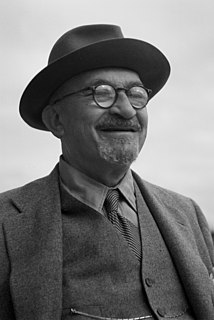A Quote by Robert Hass
[Osip] Mandelstam was killed by Stalinist forces.
Quote Topics
Related Quotes
There are many possible interpretations of what it means to create dangerously, and Albert Camus, like the poet Osip Mandelstam, suggests that it is creating as a revolt against silence, creating when both the creation and the reception, the writing and the reading, are dangerous undertakings, disobedience to a directive.
[Osip] Mandelstam, who wasn't a political thinker, loved the idea of the city-state. One of the emblems in his poetry of the politics he imagined, over and against the universalizing politics of [Carl] Marx, was the medieval city of Novgorod, which had in its center a public well where the water was free to everyone. That became for him a figure of justice.
When I first saw China, there were no automobiles. There were no supermarkets. There were no high-rise buildings. There were no consumer goods. There were no restaurants that were at least accessible that foreigners could see. It was a Stalinist society, and a very poor Stalinist society. So the economic system has totally changed, and the private sector in the economic system is now the dominant sector. It didn't exist at all as late as 1979.

































